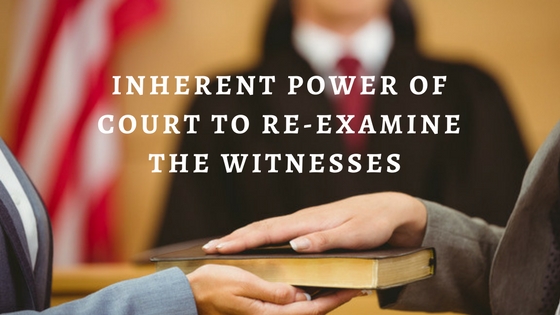Aapka Consultant Judgment Series- In this series, we are providing case analysis of Landmark Judgments of Hon’ble Supreme Court of India.
K.K. Vellusamy v. N. Palanisamy
[2011] 11 SCC 275, AIR 2011 SCW 2296
JUDGES: R.V. Raveendran and A.K. Patnaik
Date of Decision: 30-03-2011
FACTS:-
In the instant case, the respondent filed a suit for specific performance of agreement for sale deed. After closure of evidences, when the stage of final arguments was in progress, appellant-defendant filed two applications under S. 151 and Order 18 Rule 17 of CPC for further cross-examination of evidences. Respondent resisted the applications on the ground the applications were a dilatory tactic to drag on the proceedings. The trial court dismissed both the applications holding that as the evidence of parties had been concluded and the arguments also had been heard in part and these applications were intended only to delay the matter. High Court affirms trial court order. Hence, appellant preferred an appeal before the Supreme Court.
ISSUE:-
Whether the application for the reopening or re-examination of witness ought to have been allowed or not?
JUDGMENT:-
The Apex Court noted that both the sub courts have mechanically dismissed the application only on the ground that the matter was at the stage of final arguments and the application would result in delaying the proceedings. With regard to the provision to recall of the witness in Code, Hon’ble Court viewed Order 18 Rule 17 as primarily provision enabling the court to recall any witness either suo-moto or at the request of any party and put such questions to clarify any issues or doubt.
Although, there is no specific provision in the Code enabling the parties to re-open the evidence for the purpose of further examination-in-chief or cross-examination but S.151 grants inherent powers of the Code to make such orders as may be necessary for the ends of justice.
To support or clarify above assertions, Hon’ble Court has summarised the scope of S. 151 of CPC as follows:
- 151is not a substantive provision. It merely recognizes the discretionary power inherent in every court to secure the ends of justice and prevent abuse of its process.
- As the provisions of the Code are not exhaustive,section 151 recognizes and confirms that if the Code does not expressly or impliedly cover any particular procedural aspect, the inherent power can be used to deal with such situation or aspect, if the ends of justice warrant it.
- A Court has no power to do that which is prohibited by law or the Code, by purported exercise of its inherent powers. In other words the court cannot make use of the special provisions of S. 151 of the Code, where the remedy or procedure is provided in the Code.
- The inherent powers of the court being complementary to the powers specifically conferred, a court is free to exercise them for the purposes mentioned in Section 151 of the Code when the matter is not covered by any specific provision in the Code and the exercise of those powers would not in any way be in conflict with what has been expressly provided in the Code or be against the intention of the Legislature.
- While exercising the inherent power, the court will be doubly cautious and the exercise of power depends upon the discretion and wisdom of the court, and the facts and circumstances of the case.
- The power undersection 151 will have to be used with circumspection and care, only where it is absolutely necessary and there is no provision in the Code governing the matter.
As laid down in the above guidelines, that S. 151 or Order 18 Rule 17 should be exercised cautiously on bonafide to avoid abuse of law and not on routine manner. In appropriate circumstances, the court must:
- Award cost to other party for delay;
- Case should be taken within fixed scheduled time;
- Reject the application with heavy cost if found bad in law.
It was also noted that the both the sub courts failed to consider the question that it is a fit case for exercise of jurisdiction under S. 151 or Order 18 Rule 17 of Code.
Thus, in light of above observations, Hon’ble Court partly allowed the appeal with regard to the dismissal of Order 18 Rule 17 and directed trial court to consider the application under section 151 of Code in fresh.
HELD:-
Thus held, that court can cautiously exercise its inherent powers under S. 151 of CPC to protect ends of justice by recalling witnesses.
To Get Legal Opinion from Advocates/ Legal Experts, Please click here
To Get Legal Opinion from Retired Hon’ble Judges, Please click here












